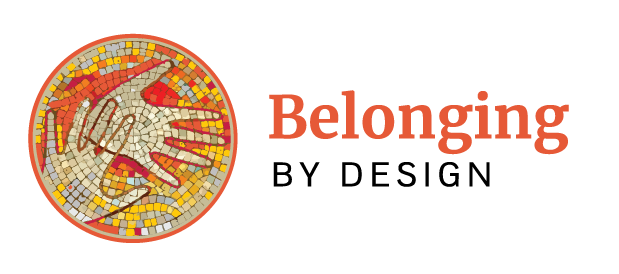Small is Big
Small groups are popping up everywhere these days, and I couldn’t be happier!
In this world plagued by loneliness and division, it’s almost impossible to feel seen, safe and connected in a big crowd.
This is true whether you work in a huge company, attend a packed networking reception, or don’t know your neighbors.
Small groups – from teams to book groups to break-outs – bring human connection into scale, get more sh..t done, and build community.
Last week I walked into a church auditorium packed with 300+ people attending a local chapter meeting of Indivisible - a growing grassroots movement to fight for democracy. Instead of the typical audience seating, people sat in small circles of chairs so tightly squeezed you could barely walk between them.
I had already been recruited, along with 20 others, to facilitate one of the small groups, with a charge to build community and organize for action. I sat with a group of strangers of all ages and invited them to share why they were there and what issues mattered most to them. It was surprisingly intimate and emotional as many of us realized we aren’t alone in our fears and desire to act.
My friend Stephanie has been organizing popular gatherings called “Club New Friends” in her San Francisco loft for several years. Her goal is simple: invite a group of (mostly) strangers to meet new people in a deeper way. At three points throughout the evening, she divides her guests into small groups with instructions to introduce yourselves and answer a prompt (like “what was your first-ever paid job” or “when was the last time you learned something new?”). Everyone must leave with at least two phone numbers from new friends.
Now Stephanie’s going big, with mass events called Drop In’s in public places, but she still uses small groups to connect people. The structure is important - without it, it’s so much harder to learn things about each other that matter, and to feel connected in a crowd.
Small groups or “Belong Circles” are a central strategy of the new Belong Center, a national organization working to “end the loneliness epidemic and build a culture of belonging.” The Center sponsors 25+ peer-led circles across the country, each following a structured curriculum designed to take the pressure off of showing up and making conversation with strangers.
I talked to Katey Peck who leads the Seattle Belong Circle. She’s only been in Seattle for two years and identifies as an introvert herself, so understands the need for social onramps.
“Some people are really game for this stuff,” she told me, “and others are straight-up: ‘I almost turned around, do I really want to do this!’ I tell them: you’re brave to just show up!”
Katey incorporates different modes of engaging, from full group activities to pair sharing and small group conversations, ending with reflection on how it feels to listen and be listened to.
“People have said this is how life is supposed to be. We are meant to be in intimate spaces for connection and depth. Attendees love being able to just listen, not judge, not fix. Someone at the last circle shared they appreciate not having to worry about whether they’re too boring or entertaining enough. We’ve shown up together, committed to the agreements and can presume full acceptance!”
Structured small groups can be incorporated into the design of just about any gathering or organization, but the gold standard for belonging and community building is fixed small groups of the same people that meet regularly, deepen relationships over time, and build shared responsibility for the group’s success.
My synagogue, Peninsula Temple Beth El, has a thriving network of member-led circles organized around shared interests, from hiking and whiskey to creating cheese boards and flower arrangements. These groups have sparked new friendships and a tangible sense of belonging and energy across the congregation.
The group I love most and rarely miss is my women’s circle that meets monthly by Zoom (since we live far away). We initially met just to discuss a book on aging and life transitions, and decided there was so much to explore on this topic, and a desire to support each other in navigating life changes, that we committed to meeting monthly.
We take turns picking topics and leading conversations, and have gotten to know each other in ways we never would have through our regular social gatherings. The group has become a touchpoint for many of us to feel less alone and more supported in becoming our best selves.
Look around - the world is a lonely place. Where can YOU create a small group that cuts through our isolation and gets right to the point - creating spaces for each of us to feel seen, heard, valued and part of something bigger?

